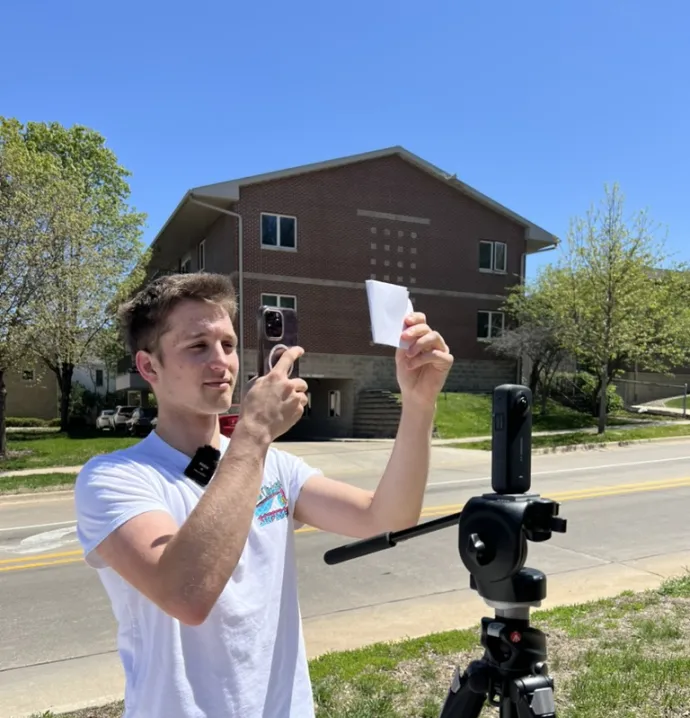UNI re-imagining its academic future
UNI re-imagining its academic future
The academic landscape at UNI could soon be changing.
To respond to the shifting landscape of workforce demand, UNI is for the first time in more than 40 years examining its structure and curriculum in the interest of making potentially substantial changes to the courses and programs it offers students.
It’s a process called Academic Positioning, and university leaders presented the details of the proposal to more than 100 faculty in the Great Reading Room in Seerley Hall on Wednesday.
“Academic Positioning will create conditions under which excellence in teaching and learning, scholarship and service can flourish into the future,” said UNI Provost Jim Wohlpart. “It is a deliberative and open process to innovate our curricular and co-curricular offerings, institutional structure and operational processes to ensure we provide the experiences our students and employees need to thrive.”
The process, which will engage all university constituents, will surface new and innovative programs and curriculum and determine the best alignments within academic affairs, including restructuring colleges, departments, offices and other areas. It also will establish new processes for ongoing and efficient efforts to maintain a modern and responsive curriculum.
Academic positioning will yield new or modernized programs designed for intersectional knowledge, skills and competencies needed for emerging careers. Structural innovations could include new types of degrees, novel faculty appointments, new structural or operational processes and original teaching structures to support transdisciplinary programs. The work recognizes and responds to the dynamic landscape of higher education, including changing student and workforce demands, and continuously modernizing academic offerings.
“The possibility in this process is one that empowers faculty across the disciplines to collaborate and navigate the curriculum process in ways that support innovation, imagination and entrepreneurship,” said Amy Petersen, a professor in the department of special education. “This process must be inherently student-centered and empower students and honor their dreams and needs within the context of a complex and rapidly changing world. Academic positioning, thus, holds the potential not only to address our immediate challenges but, perhaps more importantly, creates spaces where we might all imagine and dream something anew.”
The work, which will unfold over the next two years, will delve into the core of what UNI offers to students and align its programs, colleges and curriculum to both better meet the needs of the modern workforce and ready its students to tackle the prevailing challenges of our times, including fostering diversity and inclusion and combating climate change.
“We need to make sure we are preparing students to be civically engaged students,” Wohlpart said. “Institutions of higher learning must be leaders in addressing democracy and diversity and inclusion, as well as climate change. Those are issues we must be leading. We can no longer wait to do this.”
The process will be focused on collaboration, shared responsibility and transparency. Focused working groups composed of small teams of interested individuals will develop proposals on specific, targeted topics. The topics might be new curriculum, majors, academic structures, scholarship initiatives, non-academic offices or university processes.
These proposals will move forward to the Project Management Team, which will help build synergy and support the proposal development. The Project Management Team also will work with Executive Management, Deans’ Council and the Executive Advisory Committee to determine viability and needed resources for capacity-building.
“As our community moves through this process, there are core principles that will guide our work,” said Jennifer Waldron, associate vice president of research and innovation and dean of the Graduate College. “We will uphold the tenets of shared governance as well as preserve our identity as an institution that provides holistic education as the foundation of success for our students.”
UNI also has committed to retain all current, permanent faculty. Academic positioning is not a right-sizing exercise, but rather an effort to drive capacity-building and the development of creative capital to re-envision its academic position for the future.
Academic positioning will be a collaborative and transparent process. UNI plans to hold open forums in the fall of 2021 to share the ideas that have been developed.




